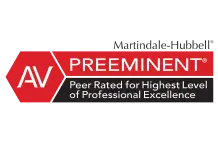Maine Dangerous Drug Lawyers
Holding companies accountable for dangerous drugs
Get Help Now. Schedule A Free Case Review Today!
The Hidden Risks of Prescription Medications: When Drug Safety Fails Consumers
More Americans than ever ― roughly 7 out of 10 ― take at least one prescription medication, and more than half take at least two. And those numbers are increasing. The U.S. Food and Drug Administration (FDA), approves many new drugs and drug therapies each year designed to treat almost every medical condition imaginable.
Many of these medications improve the quality of people’s lives, and in some circumstances, save them. But the rush to develop new drugs, fueled by greed and corporate profits, has come at a tragic cost to thousands of consumers. The truth is that not all medications are safe. In fact, some drugs are prescribed “off-label” or for uses other than what the FDA originally approved. As more Americans rely on medications, the rate of injuries caused by dangerous prescription drugs has increased at an alarming rate.
Dangerous Drug Mass Tort: an act or omission that harms a large number of people
Mass tort cases arise from a dangerous prescription drug on the market that harms many people. Some of these cases are well-publicized, while many others never make headlines, but cause just as much pain to the people whose lives are affected. In a mass tort case, plaintiffs with similar injuries file individual lawsuits, which are grouped together only for pretrial proceedings, and then they may be tried later in their original state jurisdiction. These personal injury cases fall under the category of product liability: the responsibility of corporations, distributors, and manufacturers of pharmaceutical drugs to foresee and test for potential risks and deliver safe products to the market.
What makes a prescription drug dangerous?
When pharmaceutical companies prioritize profits over safety by failing to test, label, or warn about potential risks, they can be held liable for personal injury. Dangerous drug attorneys work to hold these companies accountable and recover full compensation for affected consumers.
Despite FDA oversight, prescription drugs can still pose serious risks due to insufficient warnings, design flaws, manufacturing mistakes, or inadequate testing. When drug makers fail to properly inform the public and medical community, they must be held accountable for putting consumer safety at risk.
How do I find out if you have a valid dangerous drug claim?
The FDA tracks thousands of implantable, life-saving, and life-sustaining medical devices and maintains a database of all drug recalls. Among these dangerous drugs, some are the source of ongoing lawsuits in courts around the country. If you have been harmed by a pharmaceutical drug, you may have a liability claim.
The first step to see if you have a valid claim is to consult with an attorney who will determine what dangerous drug claims are being handled and if your potential case qualifies for further investigation. There are strict statutes of limitations in dangerous drug cases, so it’s important to get in touch with an experienced personal injury attorney as soon as possible.
What compensation can I receive from a dangerous drug lawsuit?
Under state and federal law, consumers harmed by dangerous drugs can seek compensation for losses, including pain, suffering, emotional distress, and reduced quality of life.
Recoverable damages also cover medical expenses, lost wages, future income, and time away from work. In wrongful death cases, families may claim loss of consortium.
Protecting consumers against dangerous drugs
Dangerous drug lawsuits involve complicated medical and legal issues and are expensive to pursue. It takes an understanding and mastery of complex theories of liability and damages, as well as the time necessary to review and process thousands of case documents, and work with many witnesses and experts.
If you’ve been injured by a dangerous pharmaceutical drug, contact Berman & Simmons to determine what defective drug products are being considered for legal action and if your case qualifies for further investigation. By partnering with a national referral network of experienced mass tort attorneys, our goal is to protect consumers against potentially harmful drugs and hold corporations liable to the people they harm.






